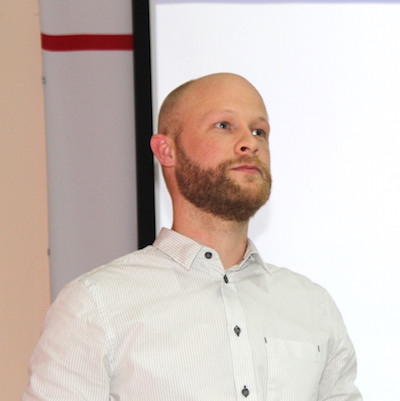On Wednesday, April 1st, ISET hosted Dr. Asger Moll Wingender from the University of Copenhagen. Dr. Wingender presented his paper “Irrigation and Autocracy” co-authored with Jeanet Sinding Bentzen and Nicolai Kaarsen.
The speaker began the presentation by introducing the topic of the paper – how autocracy and irrigation can be related to each other. The link between these two was noted first in 19th century by Adam Smith and Karl Marx and was widely talked over in Karl Wittfogel’s work “Oriental Despotism”.
Construction and maintenance of a large irrigation system requires strong leadership and autocracy is a natural environment for it to happen. Exclusive right to rule the irrigation system gives an advantage to a right holder and there is no such advantage in places with rainfed agriculture. In order to support this idea Dr. Wingender gave examples of Egypt, Mesopotamia, China, India, Andean and Mexican civilizations.
After historical excurse of the problem, Dr. Wingender continued his talk by describing the data the authors used to analyze and confirm the existence of above mentioned link empirically. The cornerstone of analyses is measure of irrigation potential as a ratio of arable land where irrigation is economically viable to arable land. By using irrigation potential rather than actual irrigation as explanatory variable reverse causality is ruled out. Using this measure (as independent variable) and polity two index of democracy (as a dependent variable) the authors showed that countries with high irrigation potential are less likely to be democratic. Respectively, societies in places with high irrigational potential are more likely to be ruled by elites.
The presentation was concluded with a long-lasting question and answer session and interesting discussion. ISET would like to thank Dr. Asger Moll Wingender for his remarkable seminar and presentation.











